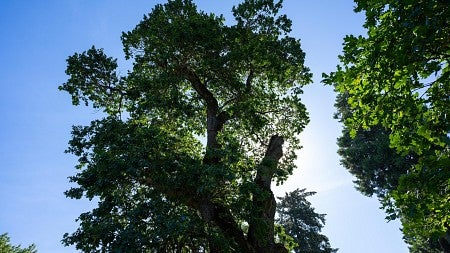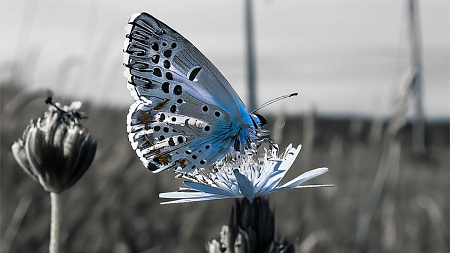The Essential Beauty of Fractal Patterns
The repeating patterns in nature are more than just aesthetically pleasing, UO professors say—they’re important in managing stress
Video by UO Creative Media • August 21, 2023
Think of a tree. First you see the big branches growing out of the trunk. Then you see smaller versions growing out of each big branch. As you keep zooming in, finer and finer branches appear, all the way down to the smallest twigs.
These are “fractals”: patterns that repeat at increasingly fine magnifications. Nature is filled with fractals—and that’s a good thing, say two University of Oregon professors, because humans turn to them for well-being.
In a new Oregon Quarterly video by UO Creative Media, physics professor Richard Taylor and Richard York, a professor of sociology and environmental studies, discuss fractals in nature and their benefit to mental health. Humans are visual creatures, the Richards note, and we reduce our stress substantially simply by viewing the beautiful fractals within clouds, rivers, coastlines, mountains, and more.
Unfortunately, we are increasingly divorcing ourselves from fractals. We’re spending less time in nature and more in built environments, including offices. At the same time, human-caused climate change is rapidly destroying natural fractals—consider a wildfire ravaging a forest or a glacier tumbling into the ocean.
Given the importance of fractals to our happiness, the professors ask, will we reconsider our relationship to nature? It’s not a rhetorical question.
UO Creative Media is a unit within University Communications.




